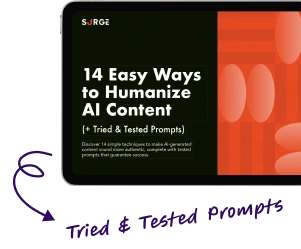Can artificial intelligence be truly safe, or is it a Pandora’s Box waiting to be opened? With the rise of powerful AI tools like ChatGPT, this question is no longer a theoretical debate for computer scientists, but a real concern for everyone. As we embrace the convenience of AI like ChatGPT, it’s crucial to ask: are we sacrificing our privacy and security at the altar of innovation?
Key Takeaways
- Understand Usage: Familiarize yourself with how ChatGPT functions to use it effectively and safely.
- Prioritize Privacy: Be cautious with sharing personal information to protect your privacy while using ChatGPT.
- Enhance Security: Use strong passwords and enable two-factor authentication to secure your accounts when interacting with AI tools.
- Evaluate Trustworthiness: Critically assess the information provided by ChatGPT, as it may not always be accurate or reliable.
- Stay Informed: Keep up-to-date with the latest security updates and best practices for using AI technologies safely.
- User Awareness: Recognize the limitations of AI to make informed decisions about its use in various contexts.
Understanding ChatGPT Usage
What Is ChatGPT Used For?
ChatGPT, crafted by OpenAI, is an AI-powered chatbot designed to assist in various tasks through natural language responses. It finds extensive use in both business and personal settings. Companies leverage it for customer service, automating responses to common inquiries swiftly and efficiently. In marketing, helps create engaging content with minimal human input.
On a personal level, ChatGPT can summarize documents, making lengthy reports easier to digest. It also simplifies language translation, breaking down communication barriers. Additionally, it excels in creative tasks, generating poems, scripts, code snippets, music, emails, and more. It’s also capable of handling open-ended or unusual questions with informative answers.
ChatGPT is globally available, though some countries impose restrictions due to local data protection laws, which may limit access but ensure compliance with regulations.
How Does ChatGPT Handle Data?
Data security is a top priority for ChatGPT. When users interact with it, the input text is processed to generate relevant responses, while OpenAI employs robust security measures, including data encryption, to ensure confidentiality and protection from unauthorized access.
OpenAI regularly updates its systems to meet current security standards, and its policies on data retention ensure that personal data is not stored longer than necessary, minimizing the risk of breaches or misuse.
Privacy and Security Concerns
Sharing Sensitive Information
Sharing sensitive information on ChatGPT can be risky. Users often disclose personal data without realizing the potential consequences, and once shared, it’s difficult to control where that information goes.
ChatGPT’s privacy policy mentions that user data might be used for training purposes, raising concerns about the security of your private information. It’s important to think twice before sharing sensitive details online.
Unauthorized Account Access
Unauthorized account access poses a serious threat to users’ security. Hackers exploit weak passwords or vulnerabilities to breach accounts, allowing them to view conversations, manipulate settings, or impersonate users. To protect yourself, use strong, unique passwords and enable two-factor authentication for an added layer of security.
Privacy Breaches and Risks
Privacy breaches are a real concern, as demonstrated by the March 2023 incident, where a data leak exposed users’ conversation histories and payment information. Such events highlight vulnerabilities in data protection, stressing the need for companies to constantly update security protocols while users remain vigilant.
FREE GUIDE
Transform AI content into human-like content


Inaccurate Content Issues
Inaccurate content can lead to misinformation. While ChatGPT generates responses from vast amounts of data, it isn’t infallible and may produce misleading or incorrect content. Users should cross-check essential information with reliable sources to avoid potential issues.
Social Engineering Threats
Social engineering threats exploit human psychology rather than technical flaws. ChatGPT’s advanced language capabilities may inadvertently assist in crafting convincing spam or phishing messages that trick individuals into revealing personal information or clicking malicious links. Always verify the source before responding to unexpected requests for information.
Data Retention Concerns
Data retention policies are crucial for privacy protection. If user conversations are stored indefinitely, the risk of unauthorized access or misuse increases. Users should be informed about how their data is handled and have options to delete their information if desired.
AI Vulnerabilities
AI vulnerabilities pose unique challenges for privacy and security. Systems like ChatGPT can be exploited by cybercriminals to extract sensitive data or manipulate outputs. Continuous monitoring and updates of AI algorithms are essential to mitigate these vulnerabilities, and developers must prioritize robust security measures to protect both the technology and its users.
Enhancing User Safety
Use VPNs for Secure Connections
VPNs (Virtual Private Networks) are a critical defense for securing your connection when using ChatGPT. They encrypt your internet traffic, making it nearly impossible for hackers to intercept your data. By masking your IP address, VPNs also help maintain anonymity, protecting you from threats like identity theft.
This is especially crucial when accessing ChatGPT over public Wi-Fi networks, which are frequent targets for cybercriminals.
Recognize and Avoid Fake Apps
Fake apps posing as ChatGPT can lead to data breaches and malware infections. To avoid these risks, always download applications from official sources such as OpenAI’s website or trusted app stores.
Be wary of poor reviews or unusual permission requests, which are clear red flags. Staying vigilant ensures you’re interacting with the authentic ChatGPT platform, which follows strict security protocols.
Implement Strong Passwords
Strong passwords are essential for securing your interactions with ChatGPT. Using a password manager can help you create and store complex passwords safely. Opt for a combination of letters, numbers, and symbols to increase security. Unique passwords for each account ensure that if one is compromised, others remain protected.
Regularly Update Security Settings
Security requires regular attention. Software updates often include patches for vulnerabilities that hackers might exploit. Make it a habit to check for updates not just on ChatGPT, but across all your devices and applications. Though it may seem like a hassle, updating is a simple and effective way to protect against emerging threats.
FREE GUIDE
Transform AI content into human-like content


Evaluating Content Trustworthiness
Assessing Content Accuracy
ChatGPT generates responses from a vast dataset that includes both reliable and unreliable sources, which means inaccuracies may occur. Since it lacks a built-in mechanism to verify the truthfulness of its content, users should remain cautious about potential misinformation.
One key aspect is recognizing that ChatGPT can unintentionally share biased or false information due to its exposure to biased perspectives or outdated facts. This makes it essential for users to critically evaluate its outputs by asking: Does this response match what I already know? Are there any obvious inconsistencies?
To mitigate these risks of accepting flawed information, cross-referencing ChatGPT’s responses with trusted sources is recommended. Doing so helps ensure the accuracy of the information and maintains the reliability of your understanding.
Ensuring Data Integrity
Ensuring the integrity of ChatGPT’s data involves more than just fact-checking; it’s also about understanding where the information comes from and how it’s processed. The AI uses a wide range of datasets that include both credible and less reliable data, making it necessary for users to remain vigilant.
It’s helpful to question the origin and reliability of the information provided. Does the response seem well-supported, or does it raise more questions? Seeking out multiple perspectives on a topic can reveal biases and provide a more well-rounded understanding. This approach also helps to identify discrepancies, which may indicate issues with data integrity.
Frequently Asked Questions
Can OpenAI see your messages?
OpenAI may review conversations to improve models. However, data is anonymized. User privacy is a priority.
Does OpenAI use my data?
Yes, for model training and improvement. Data helps enhance AI capabilities while maintaining privacy safeguards.
Does ChatGPT store my data?
ChatGPT stores data temporarily for processing. Long-term storage isn’t standard practice, ensuring user confidentiality.
Is it safe to use ChatGPT at work?
Using ChatGPT at work is generally safe. Ensure no sensitive information is shared to maintain security.
Can ChatGPT leak information?
ChatGPT itself doesn’t leak data. However, sharing sensitive info could pose risks. Always be cautious with confidential details.






